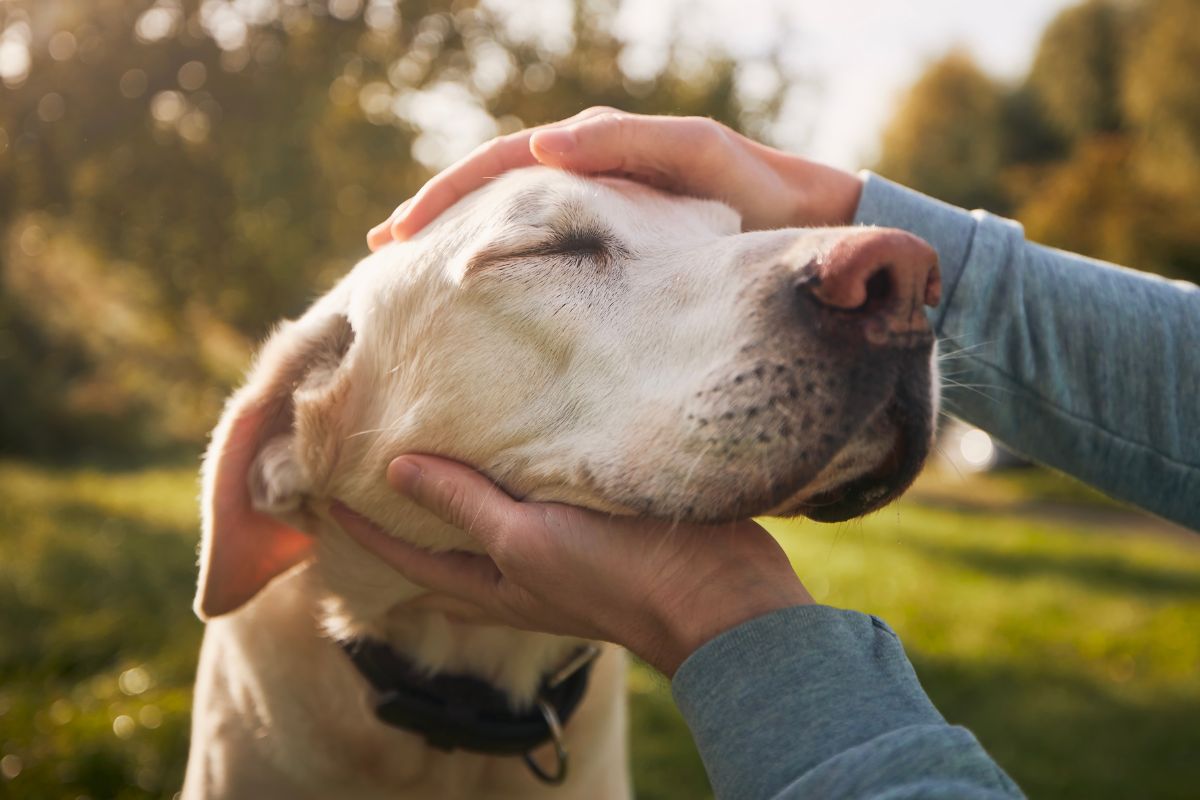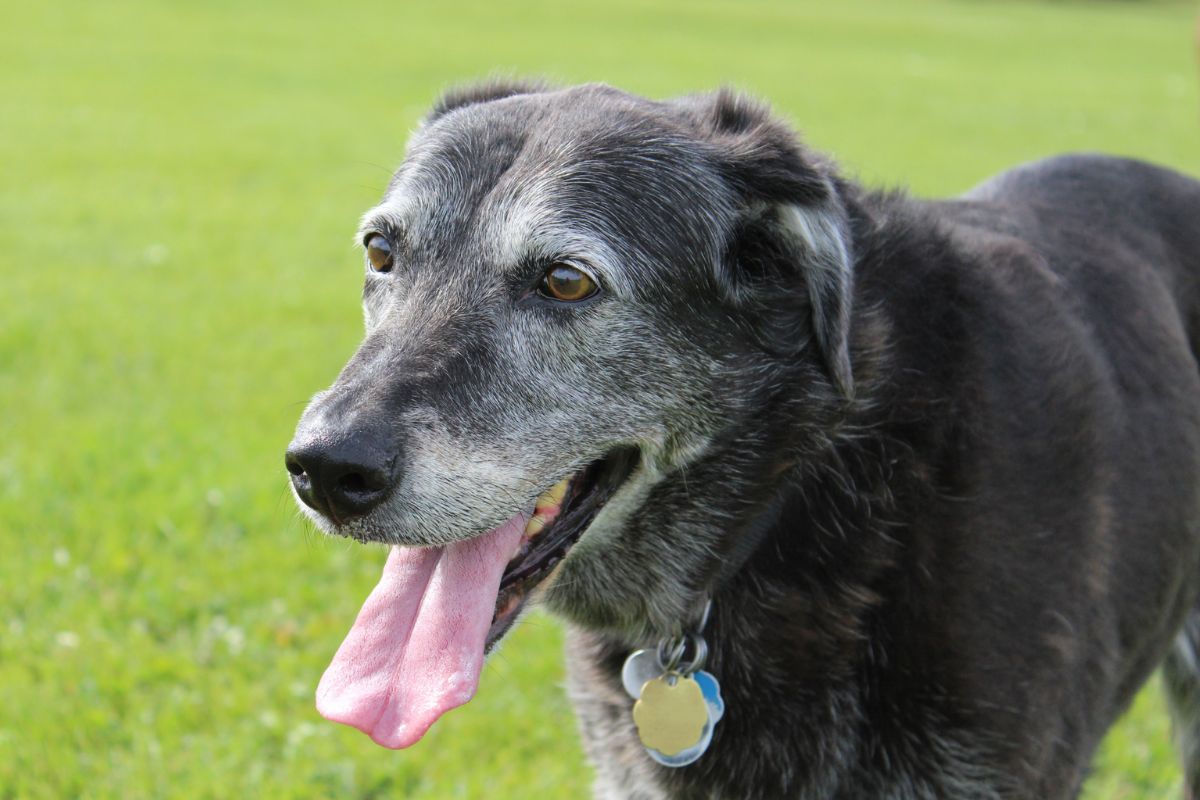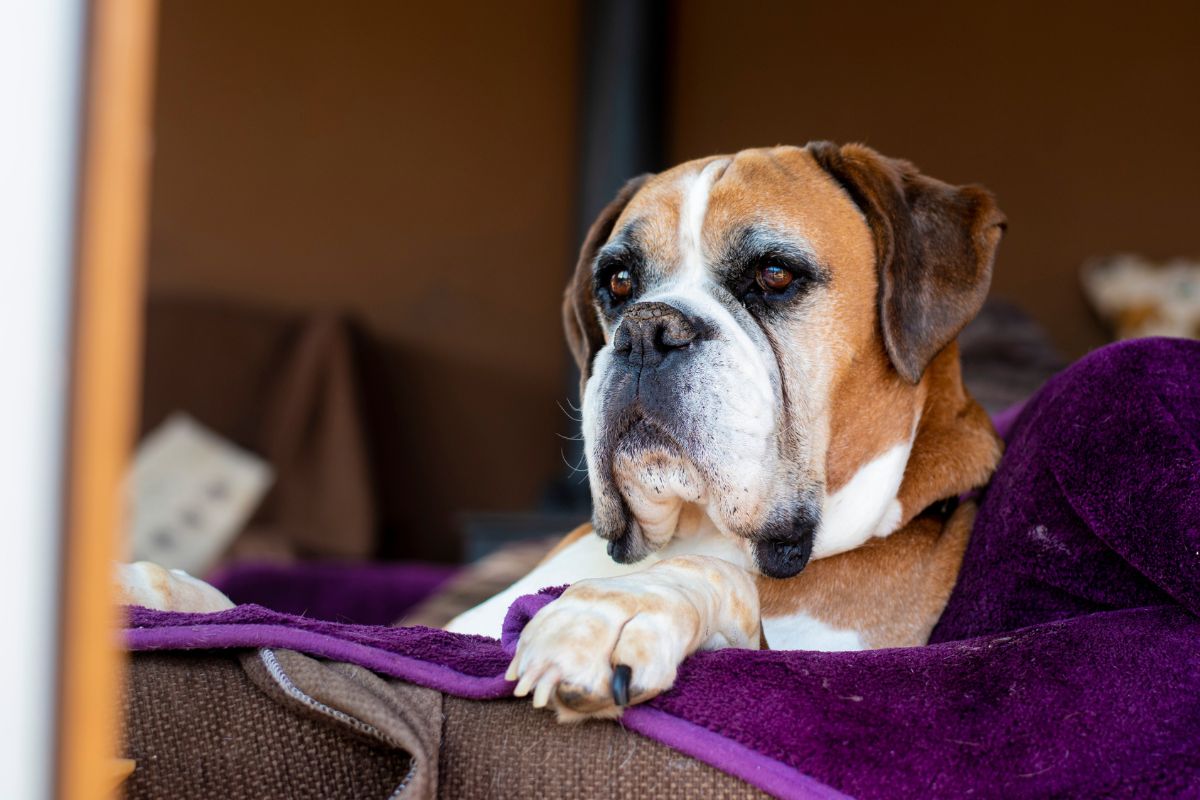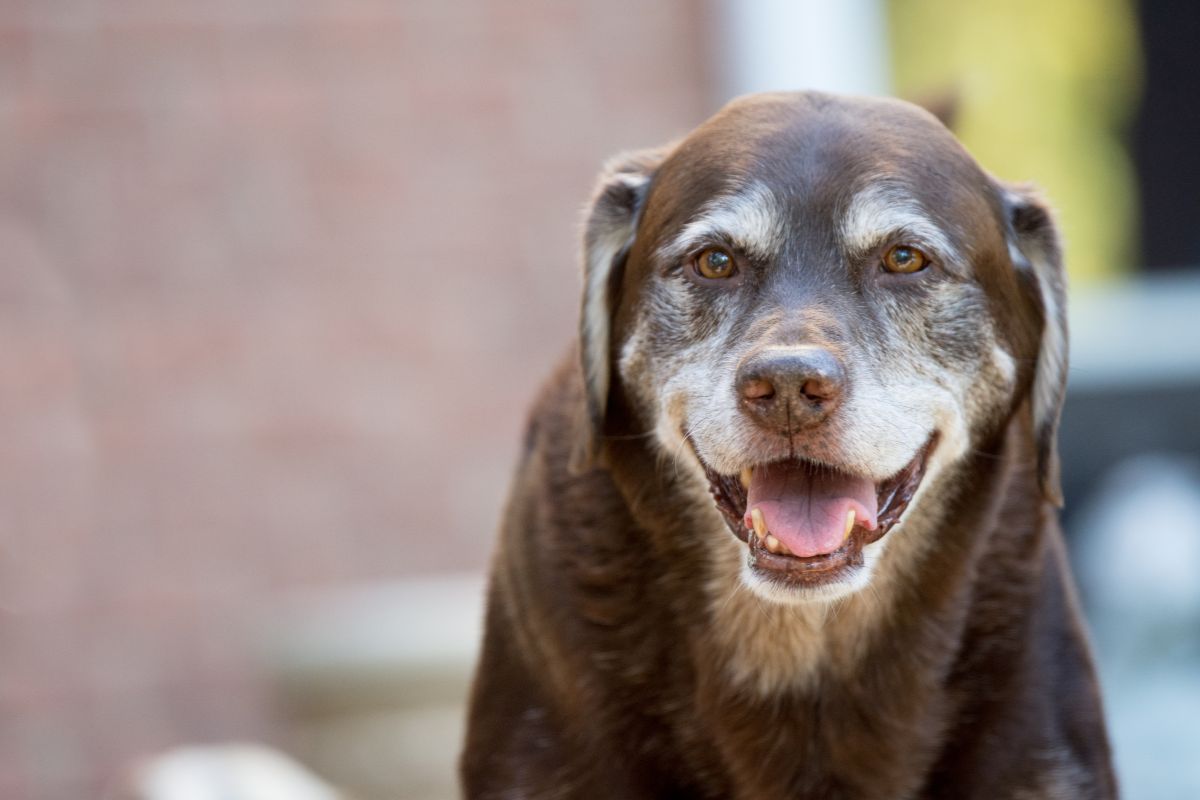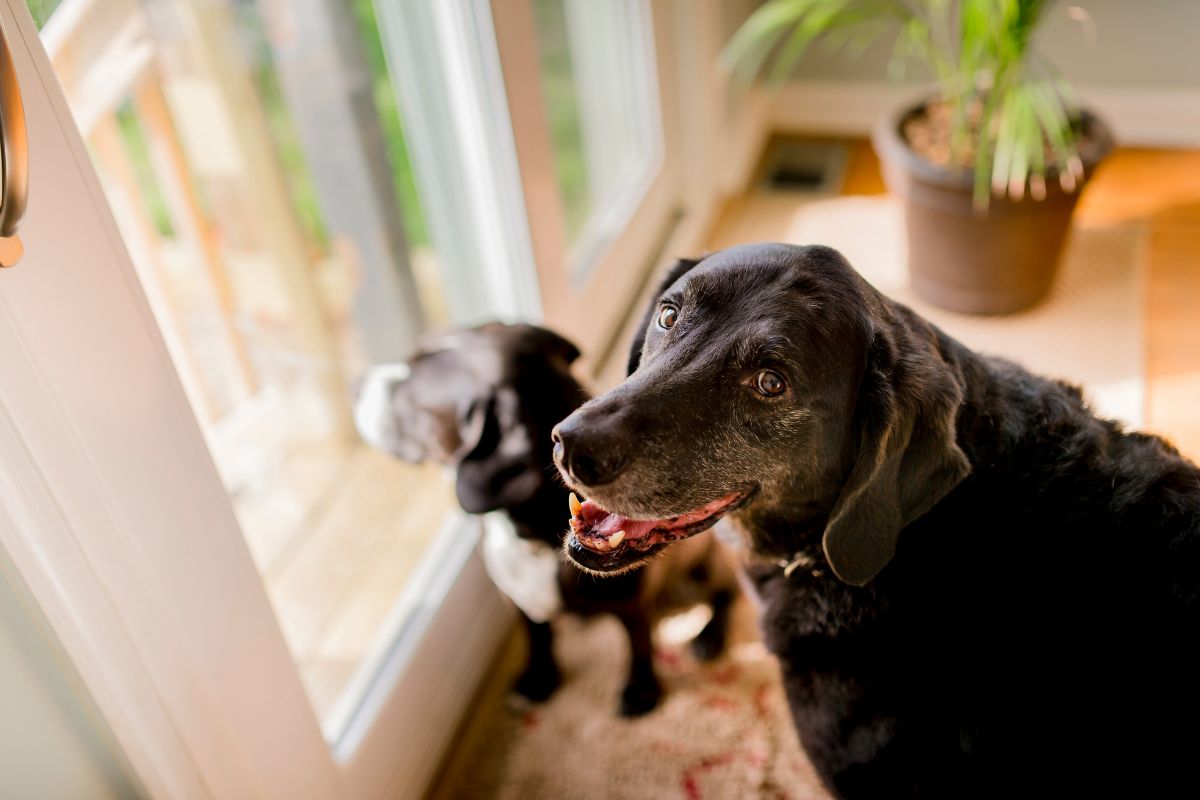Welcoming the golden years of your furry friend’s life entails a beautiful journey filled with love, care, and a deep understanding of their evolving needs. As our loyal companions age, they embark on a new phase where their health, comfort, and happiness require a specialized approach. This comprehensive guide is designed to equip you with the essential knowledge on how to take care of senior dogs, empowering you to provide unwavering support for your beloved pet’s well-being.
From dietary adjustments to tailored exercise routines and considerations for their overall health, taking care of senior dogs necessitates a unique approach. Among the crucial aspects, senior dog joint care emerges as a pivotal concern, demanding attention to ensure your furry friend’s comfort and mobility.
Join us as we explore the secrets to embracing the golden years with your loyal companion, empowering you to provide the care and attention they deserve in their senior phase.
Tailored Nutrition for Your Senior Dog’s Well-being
Meeting Changing Dietary Needs:
As our beloved furry friends advance in age, their nutritional requirements undergo a transformation. Senior dogs require a meticulously curated diet that aligns with their advancing years and any health conditions they may develop along the way. This tailored nutrition approach ensures they receive the necessary nutrients while accommodating any specific dietary needs that arise with age.
Maintaining Healthy Weight through Portion Control
Obesity is a prevalent concern among older dogs, predisposing them to a myriad of health issues, including joint problems, heart conditions, and decreased mobility. Portion control emerges as a crucial aspect in preventing weight-related complications in senior dogs.
By carefully regulating portion sizes and feeding schedules, pet parents can effectively manage their furry companion’s weight. It’s essential to factor in their activity level, metabolism changes, and any specific health conditions when determining the appropriate portion sizes. Consultation with a veterinarian aids in devising a feeding plan that caters to your senior dog’s unique needs, ensuring they receive adequate nutrition without overindulging.
Joint Care Supplements: Nurturing Mobility and Comfort
One of the primary concerns in taking care of senior dogs revolves around maintaining optimal joint health. As dogs age, their joints are prone to wear and tear, leading to discomfort and reduced mobility. To alleviate these issues, incorporating supplements rich in glucosamine and chondroitin proves to be immensely beneficial. These supplements serve as a cornerstone in supporting senior dog joint care, promoting flexibility, cushioning joints, and reducing inflammation.
Exercise and Physical Activity: Supporting Your Senior Dog’s Well-being
As our faithful companions gracefully age, their exercise routines warrant thoughtful adjustments to ensure they remain active and healthy without causing strain on their aging joints. Incorporating low-impact exercise tailored to their abilities becomes paramount in maintaining their vitality and comfort.
Tailoring Exercise for Senior Dogs
Understanding the limitations that come with age, modifying exercise becomes pivotal in catering to your senior dog’s needs. Instead of vigorous activities, opt for gentle alternatives that offer stimulation without taxing their joints. Consider:
Gentle Walks: Embark on leisurely strolls, allowing your senior dog to relish the outdoors at a relaxed pace. These walks not only offer exercise but also serve as moments of joyous exploration and bonding.
Light Play Sessions: Engage in light play sessions, emphasizing games that don’t involve excessive jumping or sudden movements. Delve into activities that stimulate their minds and bodies gently.
Prioritizing Veterinary Check-ups
Regular visits to the vet hold immeasurable significance in the realm of taking care of senior dogs. These frequent check-ups serve as a proactive measure in safeguarding your pet’s health. Here’s why they are essential:
Health Monitoring: Vet check-ups enable the early detection of any emerging health issues or conditions. From subtle signs to underlying concerns, these visits offer a thorough assessment of your senior dog’s well-being.
Customized Care: Vets can provide tailored guidance on diet, exercise, and supplements to support your senior dog’s specific needs. Their expertise ensures a personalized approach to optimize your furry friend’s health.
Prompt Intervention: Identifying health issues early allows for timely interventions. Whether it’s joint pain, dental concerns, or other age-related ailments, swift action can alleviate discomfort and improve your pet’s quality of life.
Comfortable Living Environment for your Senior Dog
Creating a comfortable living environment for your senior dog is crucial in ensuring their well-being and happiness. This encompasses several key elements tailored to address their specific needs.
Orthopedic Bedding for Blissful Rest
Investing in orthopedic beds is a cornerstone of senior dog joint care. These specialized beds are crafted to offer unparalleled comfort and support, alleviating the strain on achy joints that often accompany age. The orthopedic design provides a cushioned surface that molds to your dog’s body contours, reducing pressure points and promoting better sleep quality. By offering this cozy haven, you enable your senior dog to wake up refreshed and rejuvenated, ready to embrace the day.
Ensuring Easy Access for Enhanced Mobility
As age catches up, mobility can become a challenge for senior dogs. Simple tasks like accessing their favorite spots or climbing into cars can become daunting. To ease their movements and minimize strain on their joints, consider incorporating ramps or steps. These aids provide a gentle incline or elevation, allowing your furry companion to navigate elevated areas effortlessly. Whether it’s reaching their favorite spot on the couch or getting in and out of the car for adventures, these additions eliminate discomfort and promote independence.
Senior Dog Health: Prioritizing Well-being in Their Golden Years
Regular Grooming for Optimal Hygiene
Ensuring your senior dog’s well-being encompasses more than just cuddles and treats; it involves dedicated care, especially in grooming routines. Taking care of senior dogs necessitates regular grooming sessions that go beyond maintaining their appearance. It’s a crucial aspect of preserving their health.
Grooming as a Hygiene Ritual: Incorporating regular grooming into your senior dog’s routine serves as a hygiene ritual that keeps their coat healthy, skin clean, and fur free from mats or tangles. This practice not only enhances their physical appearance but also contributes significantly to their comfort.
Dental Health Concerns: Aging dogs are more susceptible to dental issues such as tartar buildup, gingivitis, and tooth decay. To combat these problems, diligent attention to their dental hygiene is imperative. Integrate brushing their teeth into your grooming routine and supplement it with dental treats or toys designed to promote dental health.
Signs of Aging: Identifying Changes for Timely Care
Vigilance is Key: As our beloved companions age, their bodies undergo changes that may manifest in various ways. Taking care of senior dogs involves being vigilant for signs that signify the onset of aging-related issues.
Mobility Changes: Keep a keen eye on changes in their mobility. If you notice your once active pup struggling to move or showing stiffness, it might indicate joint issues or arthritis, common in senior dogs. Addressing these signs promptly can prevent discomfort and improve their quality of life.
Appetite and Behavioral Shifts: Changes in appetite or sudden shifts in behavior are also indicative of potential health concerns. A decreased appetite might signal dental problems, digestive issues, or even pain. Any unexpected alterations in behavior, such as increased restlessness, could signify discomfort or distress.
Consulting the Vet: Timely intervention is crucial. Should you notice any of these signs, consulting your vet promptly is imperative. Professional guidance ensures early detection and effective management of any health issues, thereby enhancing your senior dog’s well-being.
Mental Stimulation: Keeping Their Minds Sharp
As your furry companion enters their senior years, keeping their minds active becomes imperative for their overall well-being. Engaging them in mental exercises is a wonderful way to stimulate their cognitive abilities. Introduce a plethora of interactive toys and engaging puzzle feeders specifically designed to challenge and entertain your senior dog’s intellect.
Interactive Toys: Delve into a world of toys crafted to ignite your dog’s curiosity and problem-solving skills. Toys that dispense treats or require manipulation to reveal hidden surprises offer mental stimulation while providing an enjoyable activity.
Puzzle Feeders: Incorporate puzzle feeders into meal times. These ingenious contraptions not only slow down meal consumption but also encourage mental engagement as your furry friend works to retrieve their meal from the puzzle.
Encouraging mental exercises through these tools not only keeps your senior dog’s mind sharp but also fosters a sense of accomplishment and fulfillment in their daily routine.
Quality Time: The Essence of Bonding
Beyond the realm of toys and puzzles lies the invaluable element of quality time spent with your senior dog. Affectionate moments and undivided attention are pivotal to their emotional and mental health.
Bonding Activities: Engage in activities that promote a strong emotional connection. Simple yet meaningful interactions, like gentle grooming sessions or leisurely strolls in the park, create a bond that transcends words.
Conversational Tones: Engage in soothing conversations with your furry companion. Though they may not comprehend the words, the tone of your voice communicates volumes of love and reassurance, strengthening the bond between pet parent and dog.
Physical Affection: Embrace the power of physical touch. Gentle pats, belly rubs, and cuddles convey a sense of security and love, fostering a deep sense of well-being for your senior dog.
Remember, the time spent in shared activities and the expression of affection are not merely moments but treasures that contribute significantly to your senior dog’s overall happiness and contentment. In the twilight years, your unwavering love and attention serve as a comforting beacon, enriching their lives immeasurably.
Caring for senior dogs is an art that harmonizes compassion, unwavering attention, and a personalized approach to their evolving needs. As your loyal companion ages, their requirements transform, necessitating a proactive approach to ensure their comfort and contentment in their golden years.
In embracing the journey of taking care of senior dogs, you embark on a path that not only nurtures their physical health but also fosters a deep emotional connection. Your commitment to understanding and meeting their unique needs ensures that your cherished companion relishes a comfortable and fulfilling senior life, surrounded by love and contentment.
If this guide has been valuable to you and your furry friend, consider sharing it with fellow pet enthusiasts. Together, let’s ensure that every senior dog receives the love and care they deserve in their golden years.


